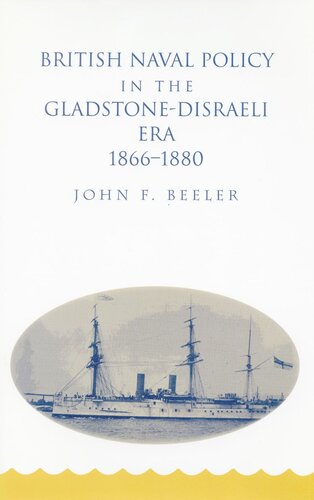

Most ebook files are in PDF format, so you can easily read them using various software such as Foxit Reader or directly on the Google Chrome browser.
Some ebook files are released by publishers in other formats such as .awz, .mobi, .epub, .fb2, etc. You may need to install specific software to read these formats on mobile/PC, such as Calibre.
Please read the tutorial at this link: https://ebookbell.com/faq
We offer FREE conversion to the popular formats you request; however, this may take some time. Therefore, right after payment, please email us, and we will try to provide the service as quickly as possible.
For some exceptional file formats or broken links (if any), please refrain from opening any disputes. Instead, email us first, and we will try to assist within a maximum of 6 hours.
EbookBell Team

5.0
40 reviewsThis book examines British naval policy during the mid-Victorian period, with an emphasis on the political, economic, and foreign relations contexts within which naval policy was formulated. This period has sometimes been characterized as the “dark age” of modern British naval history, reflecting not only the comparative lack of research on the period, but also the marginal role played by the Royal Navy during a time of peace. The author takes a fresh look at the navy’s role, which traditionally has been viewed negatively in the wake of the reconceptualization of naval strategy brought about by Mahan and the changed global circumstances of the 1890’s. Against a background of rapid industrialization and economic transformation, the author describes the structure of British naval administration in the Gladstone-Disraeli era, assesses the important reforms of that structure by the Liberal politician Hugh Childers, and examines the strategic and operational contexts of the navy itself. The comfortable foundations upon which were erected the world views and assumptions of mid-Victorian politicians and naval administrators were swept away with disconcerting swiftness by the mechanization of naval warfare. The author shows how this transformation went far beyond the realm of technology, profoundly influencing naval tactics and strategy, government finance, political discourse, and public opinion. This book is therefore as much a case study in human responses to the process of modernization as it is an investigation of mid-Victorian British naval policy.